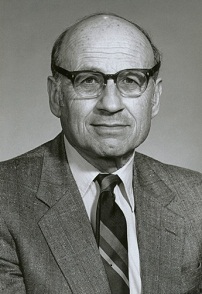Nobel laureate Dr. Kohn predicts solar industry boost
 At the American Chemistry Society’s (ACS’) 240th annual meeting, Nobel Prize winner Walter Kohn, Ph.D., said two renewable resources, solar and wind, will become the world’s dominant energy source in the relatively near future, creating a new era of humanity, which he called the SOL/WIND era. Kohn shared the Nobel Prize in chemistry in 1998 for his research development of the density-functional theory, which deals with the understanding of the electronic structure of materials.
At the American Chemistry Society’s (ACS’) 240th annual meeting, Nobel Prize winner Walter Kohn, Ph.D., said two renewable resources, solar and wind, will become the world’s dominant energy source in the relatively near future, creating a new era of humanity, which he called the SOL/WIND era. Kohn shared the Nobel Prize in chemistry in 1998 for his research development of the density-functional theory, which deals with the understanding of the electronic structure of materials.
On Aug. 24, Kohn contended that oil and natural gas production will peak within the next 30 years—maybe as soon as 10 years from now. After the peak, the world will see a rapid decline in the availability of fossil fuels, he said.
He told ACS that the dwindling supply of oil will create “two unprecedented global challenges.” “One is the threatened global shortage of acceptable energy. The other is the unacceptable, imminent danger of global warming and its consequences,” he said.
The challenges, he continued, require a variety of responses, but the most “obvious,” he said, is continual progress toward renewable energy sources that are carbon free. He also pointed out that the answer to the problem—which requires global cooperation, among other things—is evolving.
Kohn pointed to the explosive growth of the global photovoltaic (PV) and wind industries over the past decade. He observed that PV production increased by a factor of 90 and wind production increased by a factor of 10 over the period. He also predicted that both industries will continue to see “vigorous growth” in the next ten years and beyond. This international revolution, he said, would lead to the SOL/WIND era where renewables will take the stage as the world’s dominant energy source.
During the speech, Kohn also contended that people in developed countries need to reduce their personal energy use. He observed, for instance, that people in the United States, on average, use roughly five times more gas than the global average.
Kohn, now 87 and a professor at the University of California, Santa Barbara, also observed, “When it comes to providing leadership by young people in the area of energy conservation and energy efficiency and global warming—they are fantastic,” he said. “It is a major social commitment for our times.”



